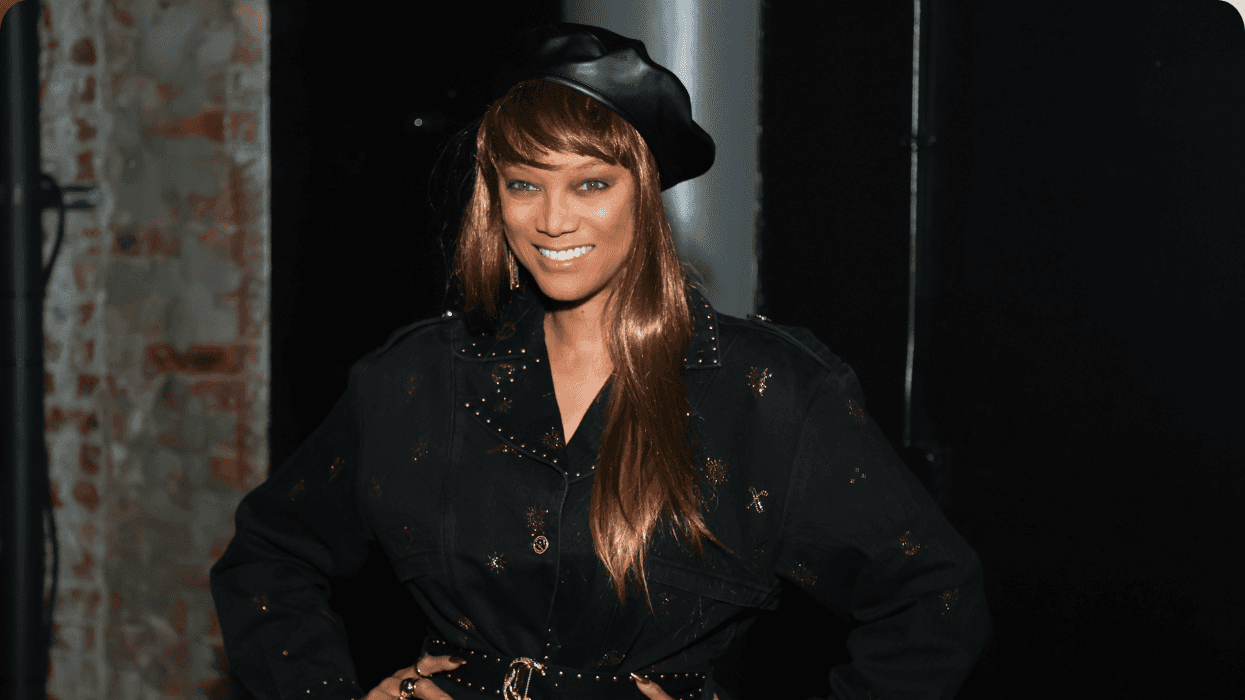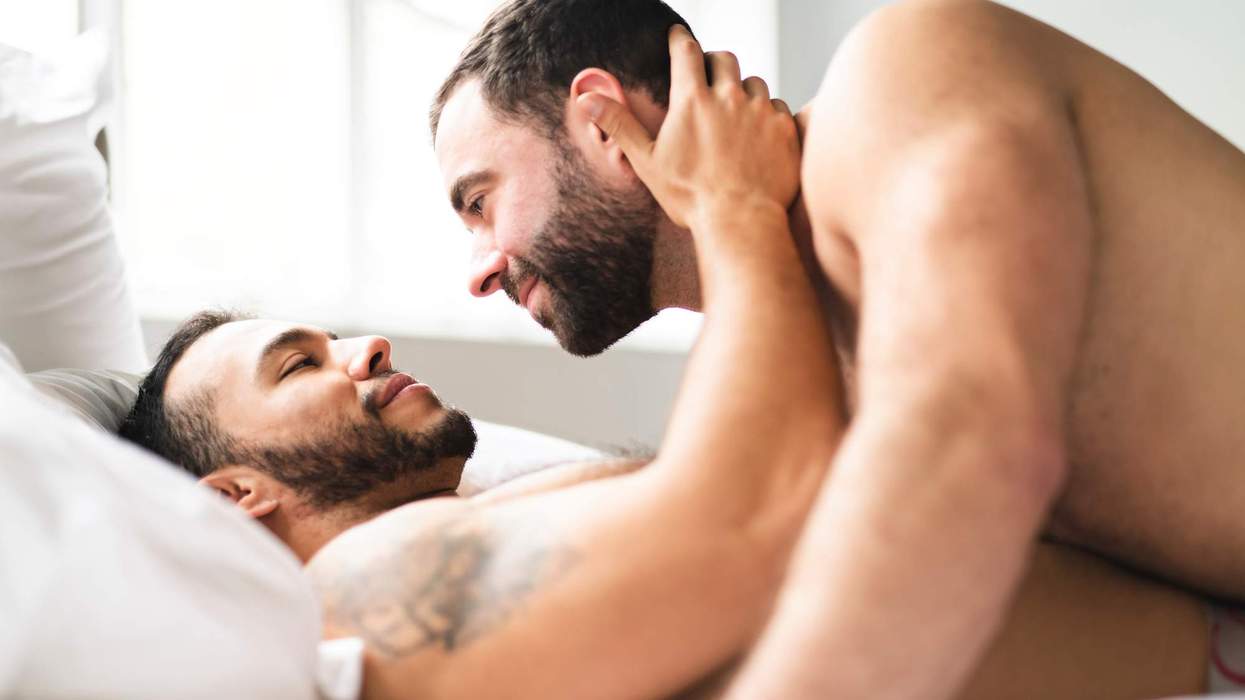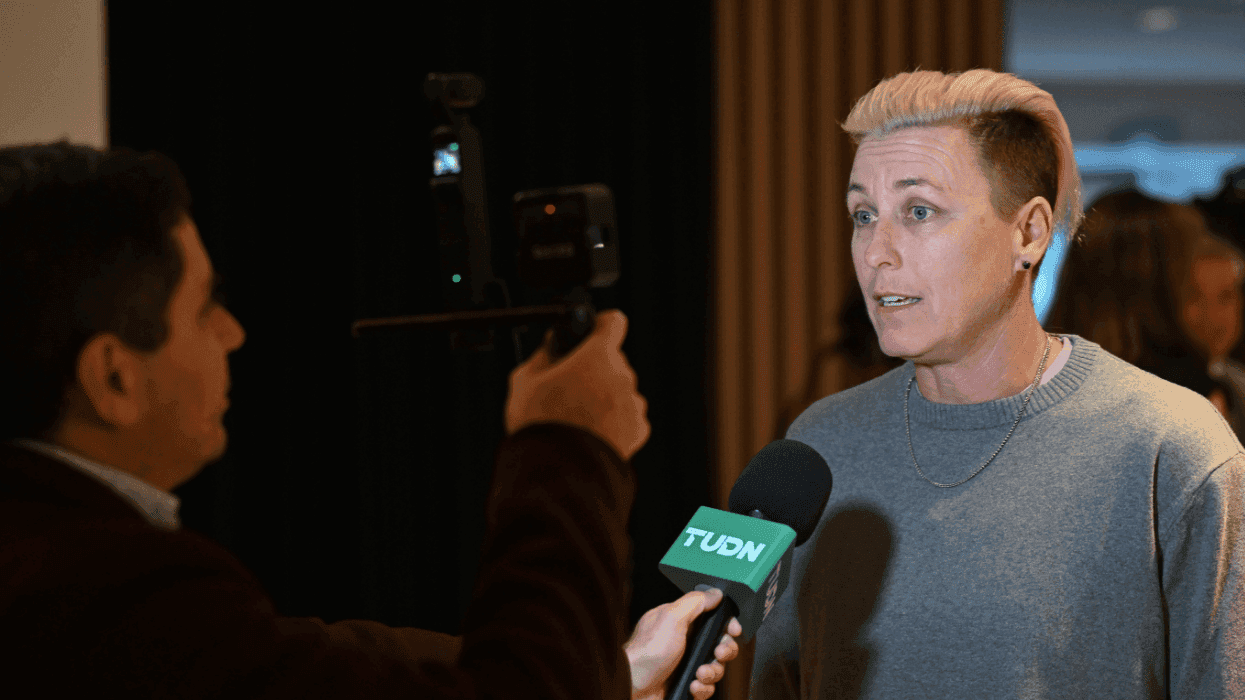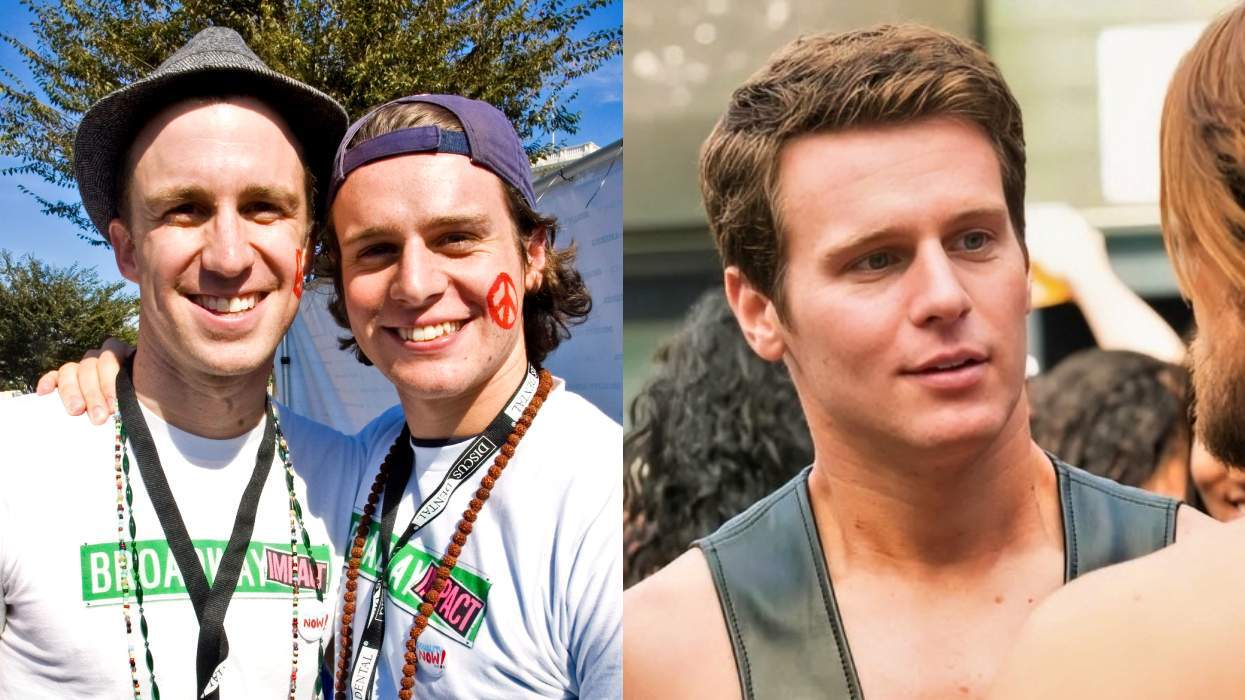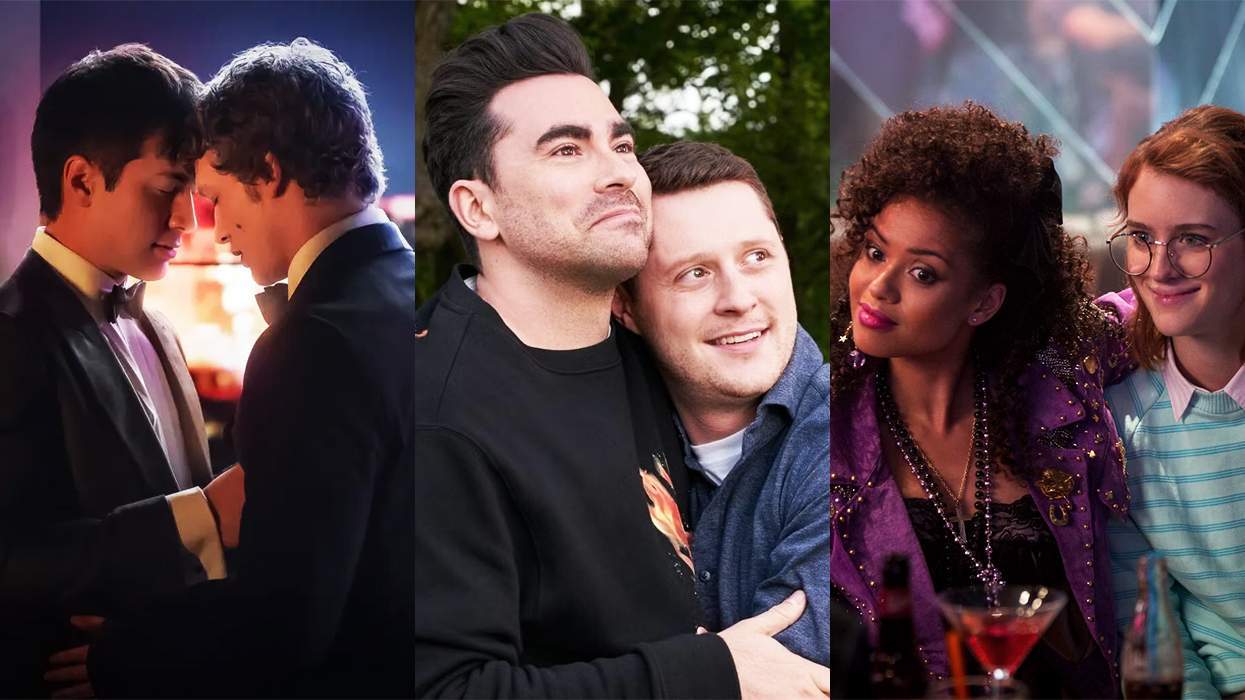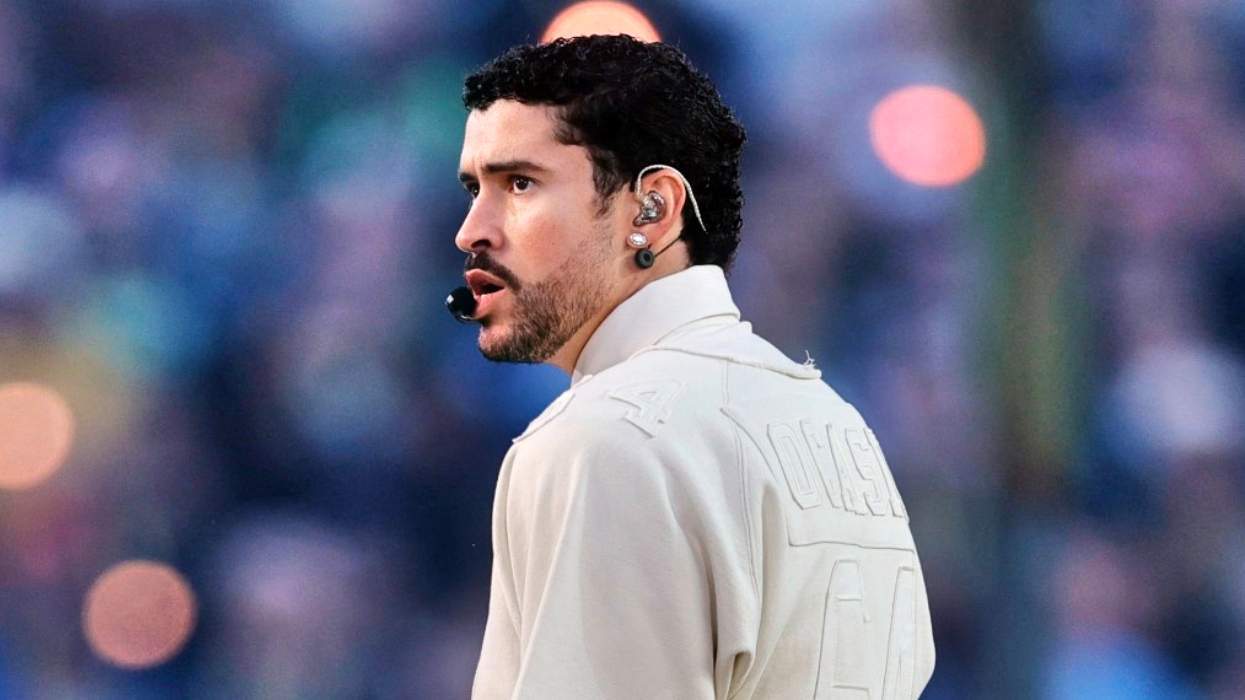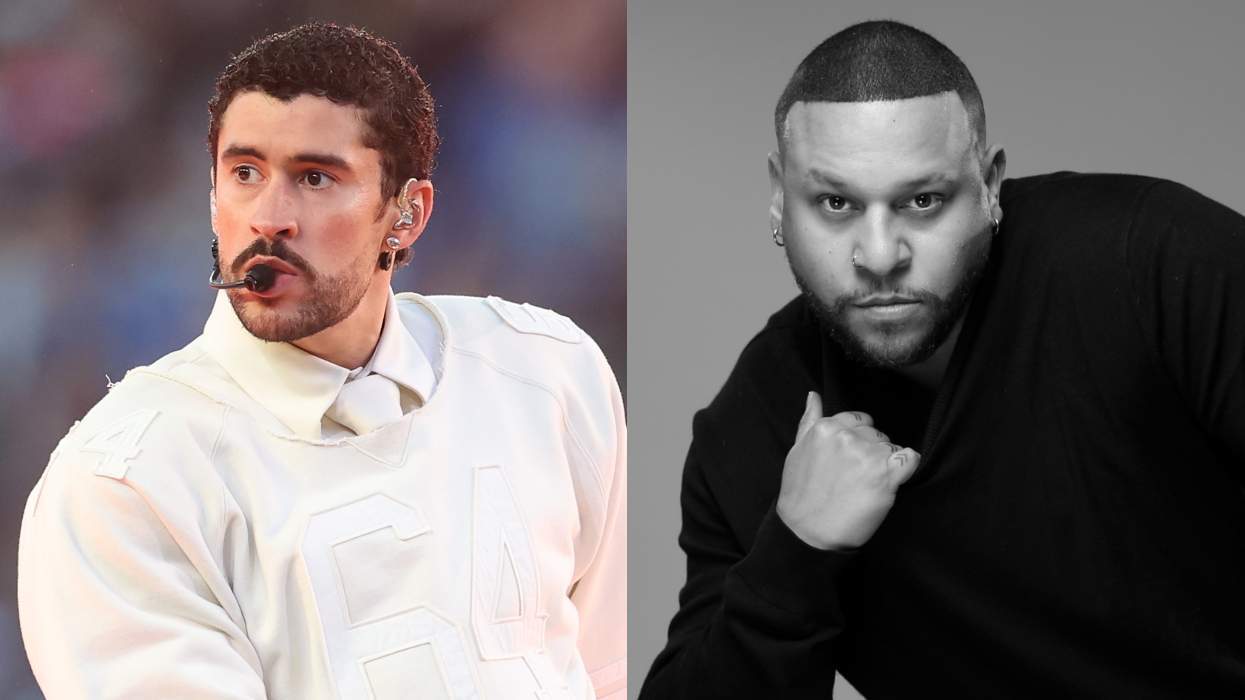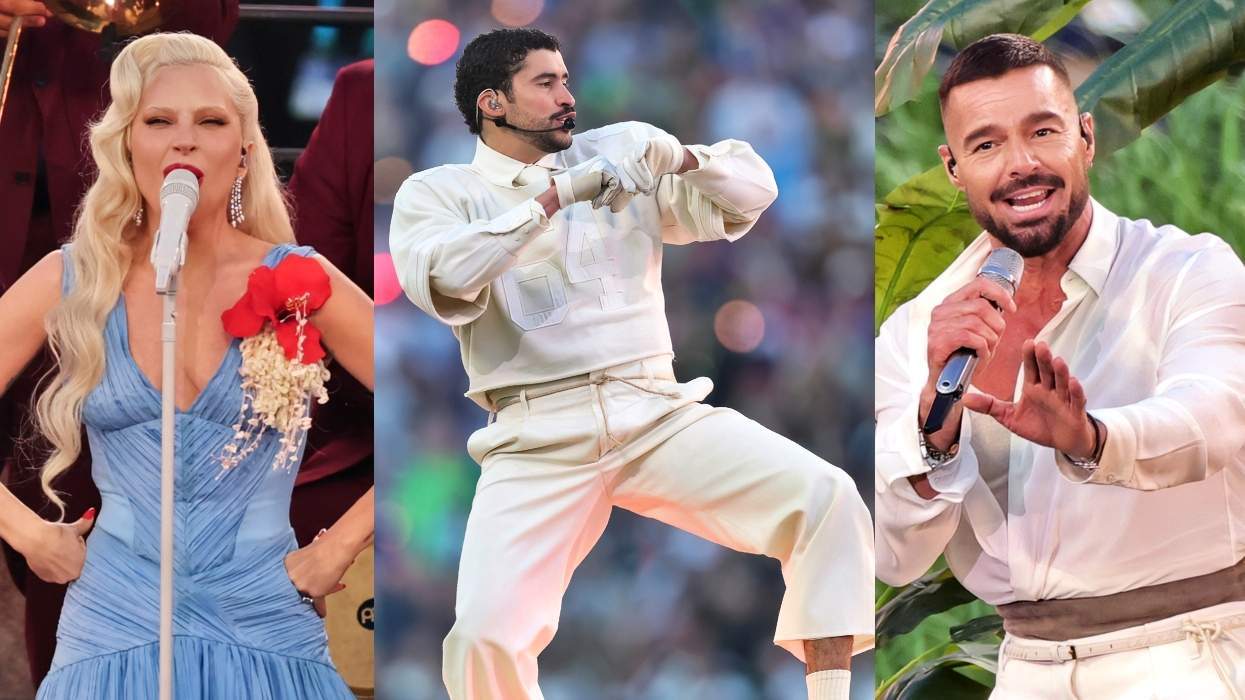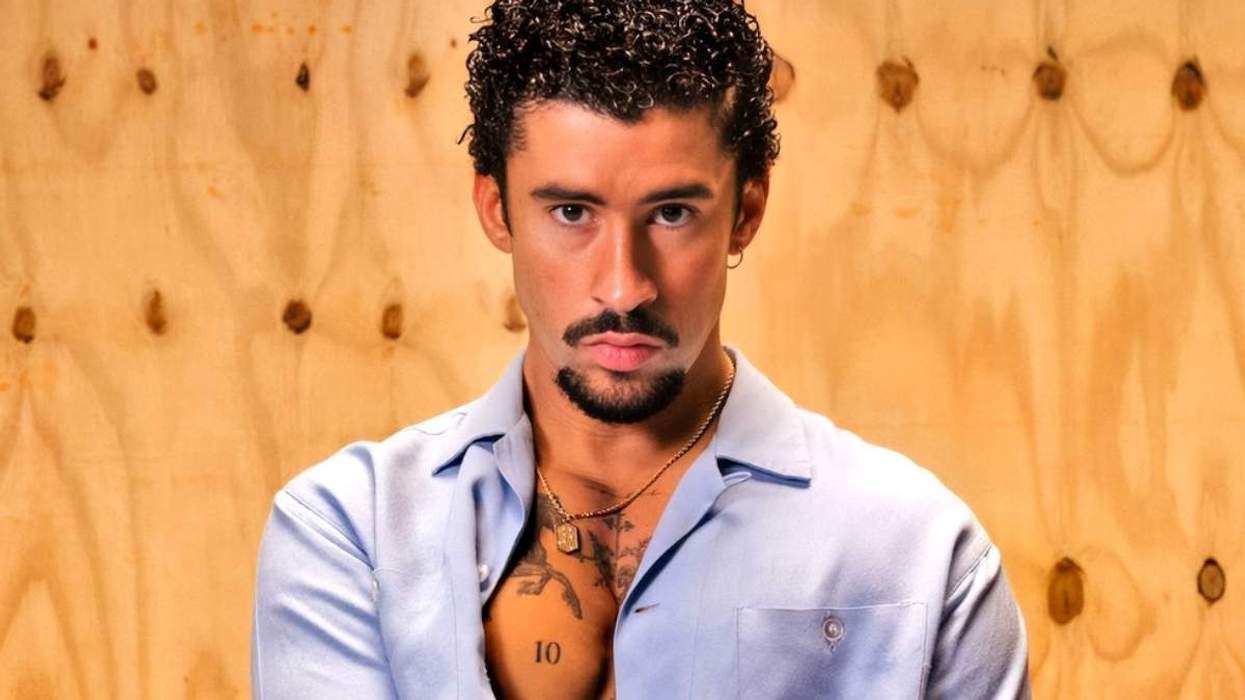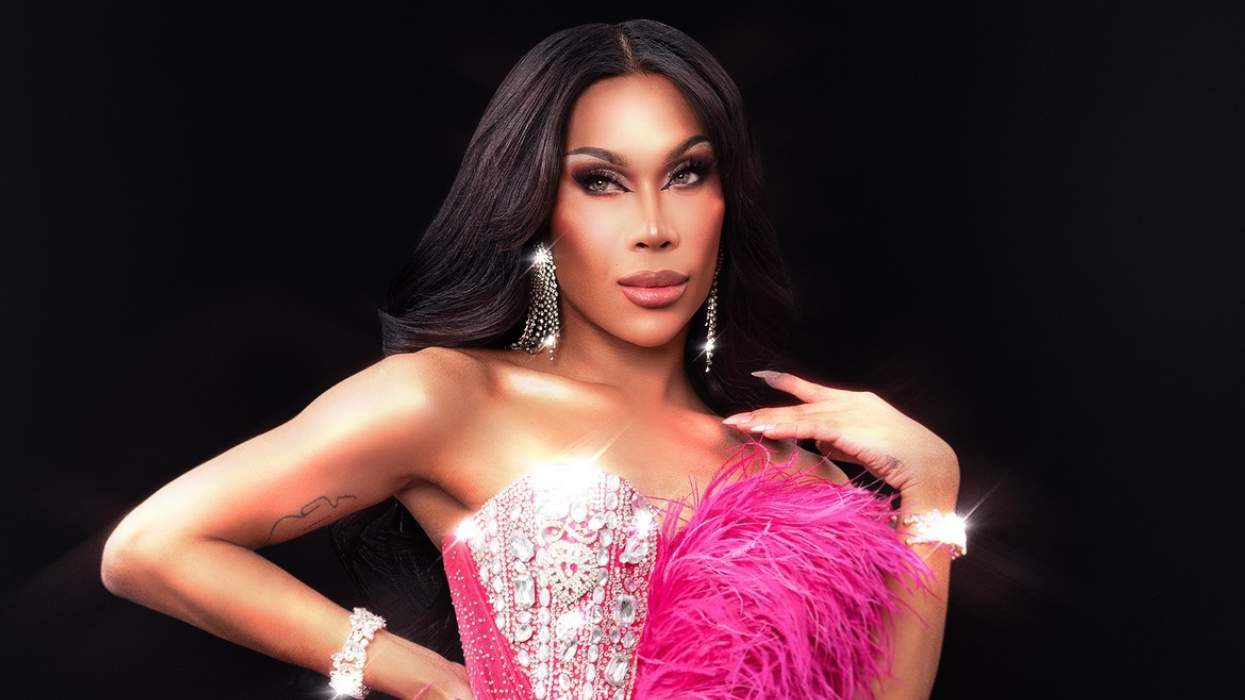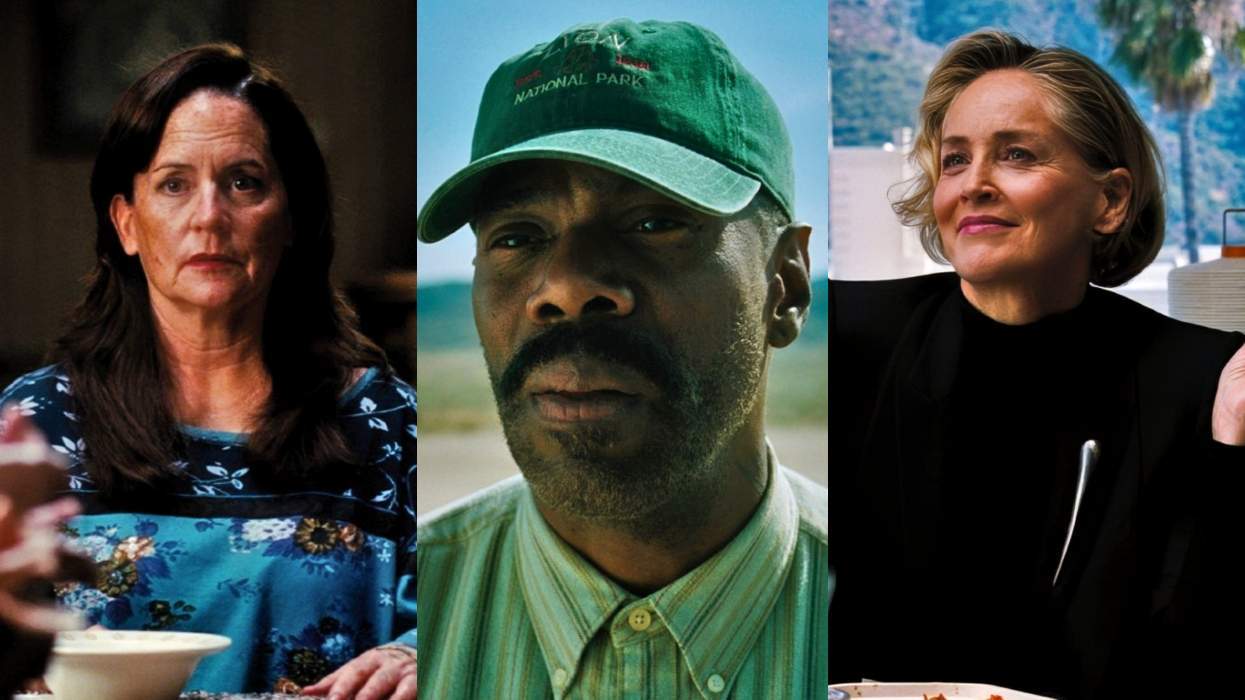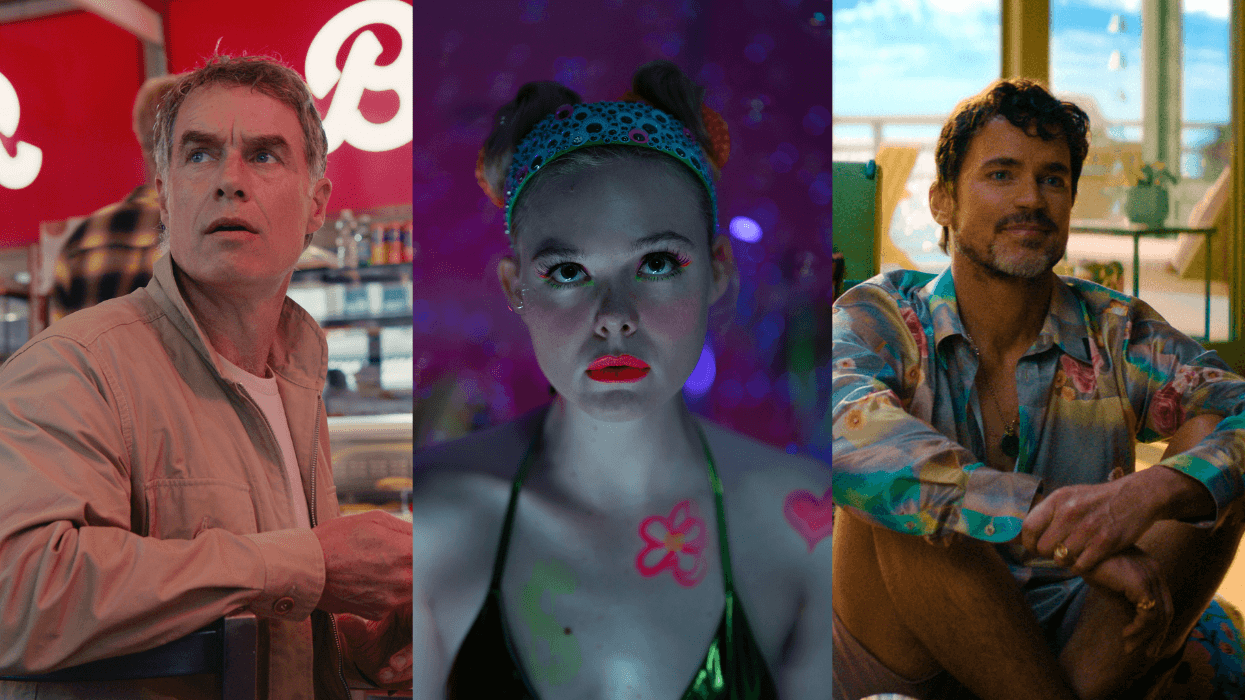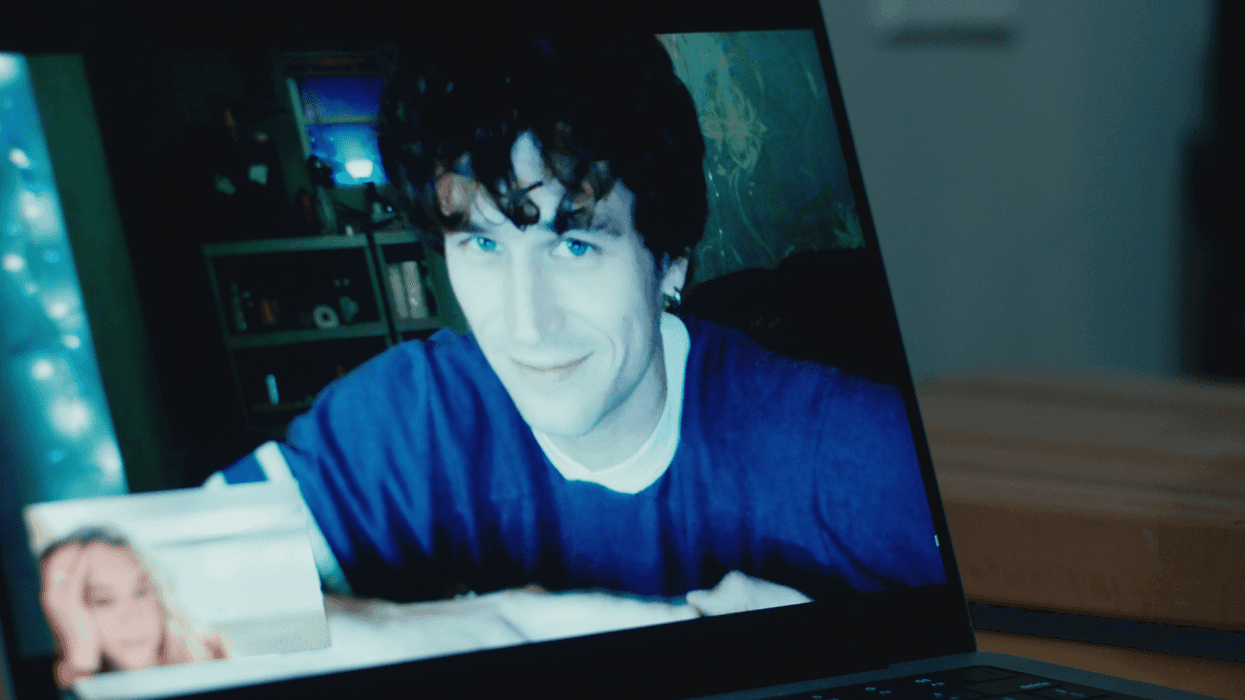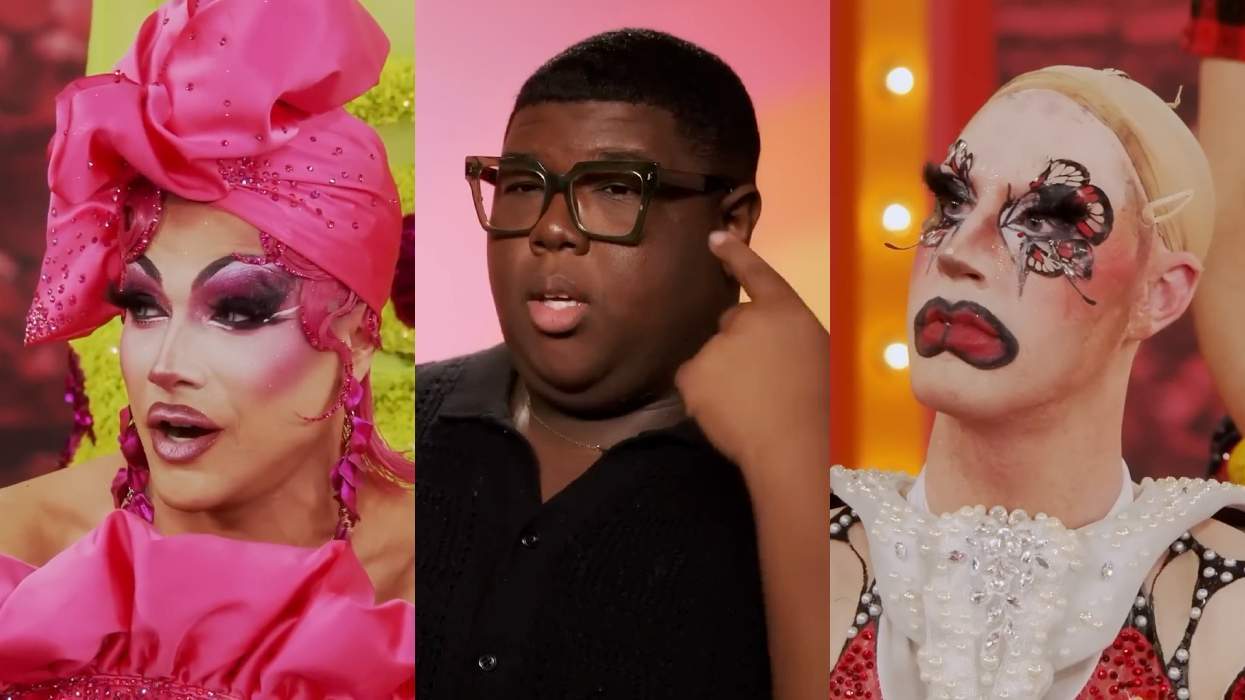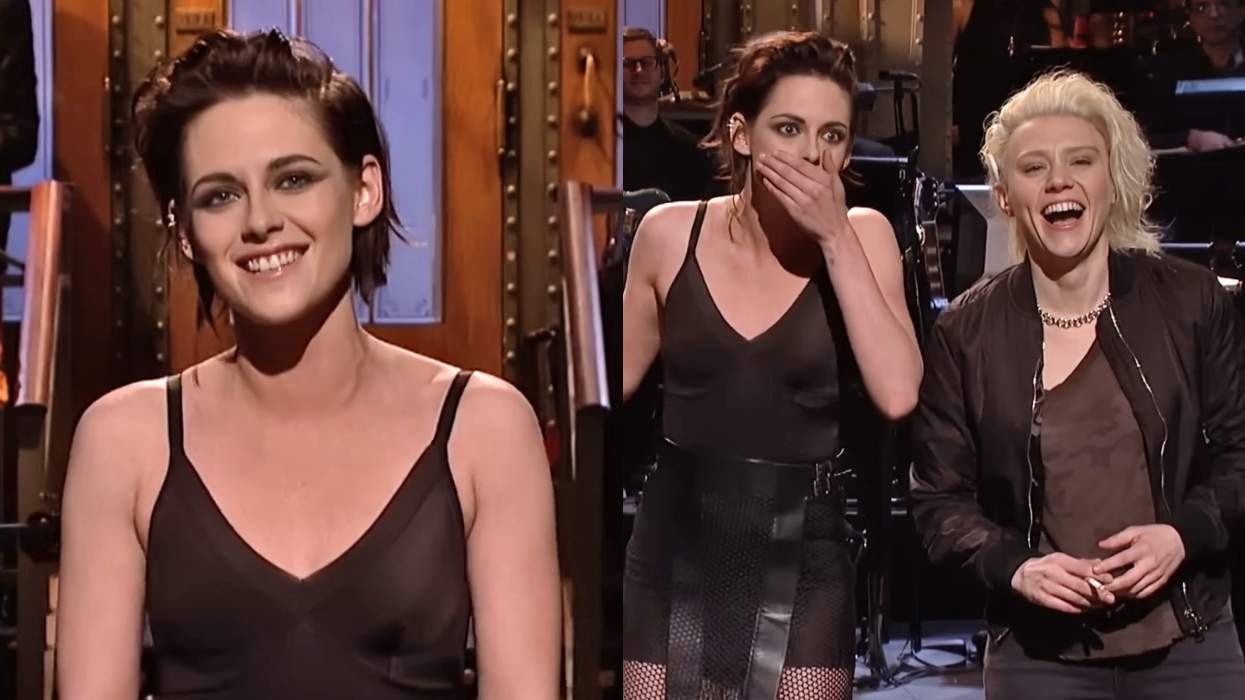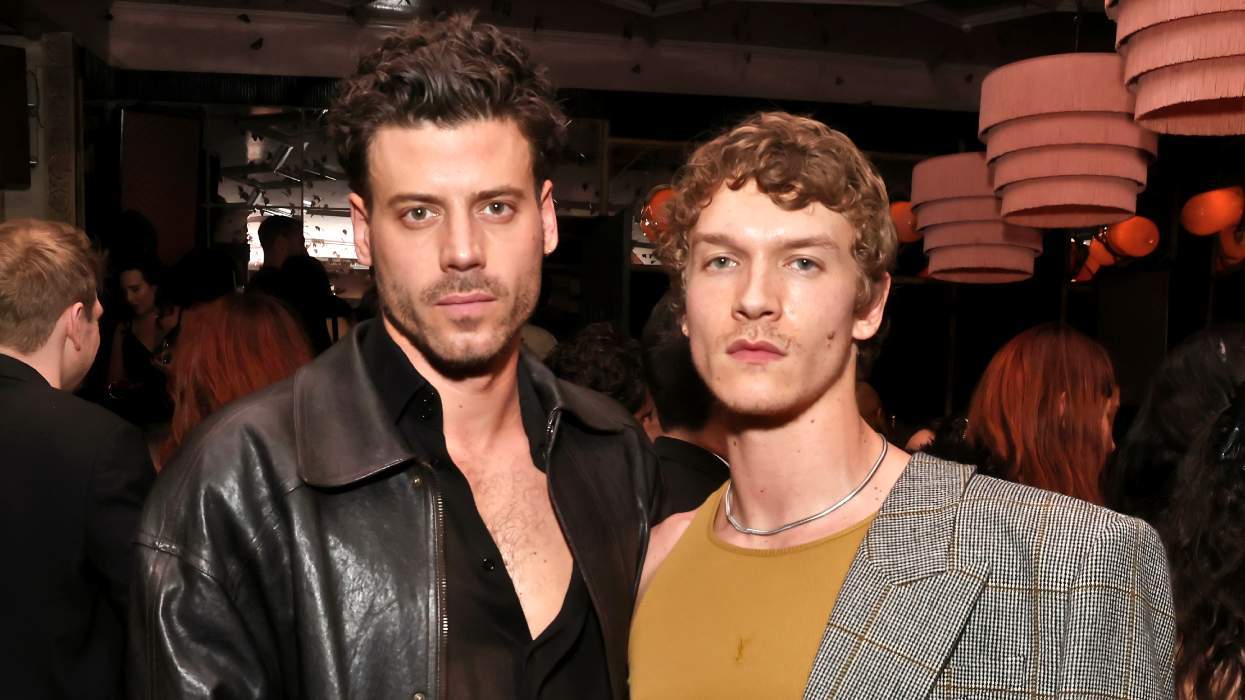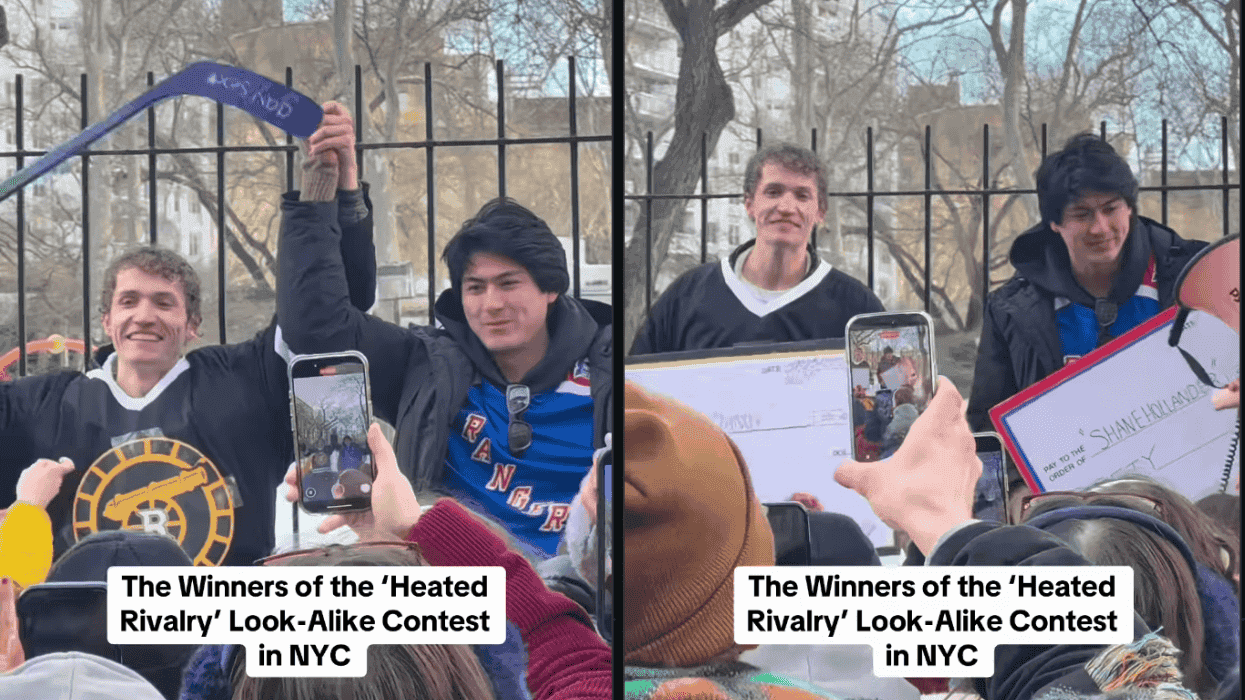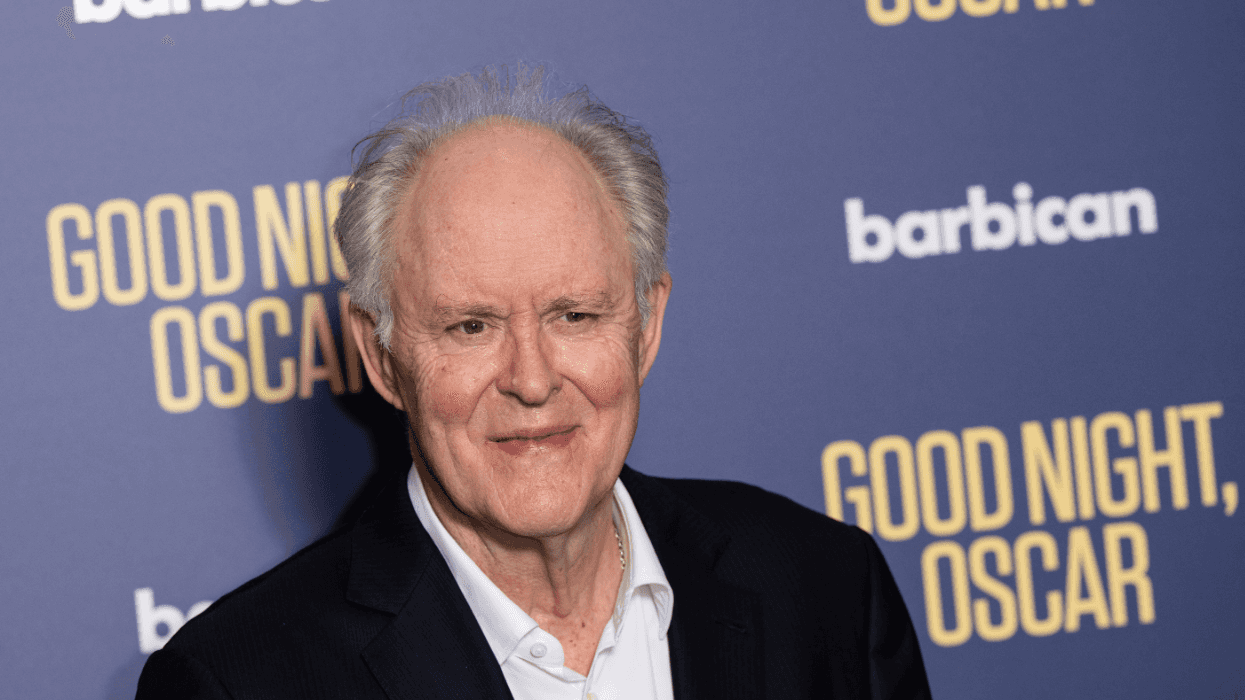HBO Max kicked off 2023 with the first-ever rock-climbing competition series on TV, The Climb. With actor Jason Momoa and rock climber Chris Sharma as producers, the reality show featured 10 amateur climbers competing for a grand prize of $100,000.
In an exclusive interview with Out, trans contestant Cat Runner discussed his experience getting cast on The Climb, meeting his fellow costars, and winning the show. Runner also shared his thoughts on the tokenization of LGBTQ+ people in mainstream media, and what his fears were going into this new experience.
Keep scrolling to read Out’s exclusive interview with Cat Runner. All episodes of The Climb are now streaming on HBO Max.
Out: Prior to going on The Climb, what was your experience with rock climbing and how long had you been doing it for?
Cat Runner: In May, it’ll be seven years climbing and taking it seriously. I climbed when I was young in a youth program… that was fourth and fifth grade. Going into middle school, I stopped because I was focused on scholastic sports. And then I picked it back up my senior year of high school. So leading into filming the show, I would’ve been going on seven years.
What’s the thing that kept drawing you back to rock climbing?
I have always been just enamored with that movement ever since I was little. I have pictures of me as a toddler, three, four years old, doing the monkey bars and stuff. Always climbing on top of things just in different styles. I’m only five foot now, so I was even smaller then, so I was the very small child who would have to leap onto the monkey bars and then would go to the end and stuff.
My dad taught me how to navigate my body weight and swing, so I just grew up climbing trees and other things. My mom found a youth program at a local gym as an outlet that I might be interested in, and then I picked it back up in high school because a classmate and I wanted to do some sort of athletic activity together. We were originally looking at CrossFit, but it’s funny that we emailed the CrossFit gym to figure out the classes and they never emailed us back. And then, as we were talking, we both learned that we had a background in climbing. Over that period of time, a bouldering gym opened up, and it was close to school. So it was like, ‘Let’s go try it.’
What was your experience when you first arrived to film The Climb? Were you feeling confident about your skill set and position in the competition?
Oh, absolutely not. I didn’t really know what to expect. I was nervous that I was going to be ‘the diversity’ because I tick a lot of boxes. I’m a person of color, I’m short, I’m trans, I’m queer. I was nervous that I was going to walk in and be surrounded by a bunch of cisgender white men, but it was amazing to figure out that the casting department did such a wonderful job. We’re pretty much even across the board, it’s an extremely diverse cast. Everyone was loving, welcoming, and respectful.
But it did take a little bit for us to be able to meet each other. I don’t think they wanted us to necessarily meet and mingle until everyone was there or the cameras were on us, to remove the possibility of alliances forming or anything like that. I didn’t know what kind of show it was going to be. I remember it was like, ‘Oh my god, is it going to be sabotage?’ Or like, ‘What is this is? Am I going to be around a bunch of people who take it super seriously?’ Not that climbing shouldn’t be taken seriously, but just survival-level psychological warfare.
So you were like, ‘Is this about to be like Survivor?’
Yeah. I was extremely intimidated. In the cast, I knew about Alice Hafer because of her visibility on social media, but I didn’t know anybody else. And I just remember as we were chatting and learning about each other, people were talking about training plans, what they had done prior to the show, their climbing resume, and all these things… I was like, ‘What am I doing here?’ But now I know that everybody was feeling that way. Everybody was feeling like, ‘Oh, what am I doing here?’
But I still think I felt another element of that because I was representing a group who is often tokenized, so it’s hard to navigate and know if you are there because of what you can do or if you’re checking a diversity box. So that [feeling] certainly plays into things. ‘Can I really stand with this group of amazing people and group of amazing climbers, or am I just here to fulfill some sort of quota?’
I think your perspective going into this experience is totally fair given what we’ve seen in other reality competitions on TV. We’ve seen a lot of shows appear like they have diverse casts only for people of color and LGBTQ+ individuals to go home early or get mistreated by other cast members or even production itself. Are you a fan of the reality TV genre?
I watched a full season of Survivor while we are filming, in downtime. But that’s my bad, I’d never watched anything. But I think that knowledge is something that most marginalized people understand and know just with the history of how we’ve been represented and the opportunities that we’re often given. It is some sort of transaction and you are being commodified, so that is something that you have to ask yourself and wonder just because of the ongoing pattern of ‘representation’ in media.
And also, yeah, I don’t watch a whole lot of reality TV or anything. It’s just the understanding of how stories are told and what stories are monetized. It’s like, you want to be the representation, but you’re also going into it knowing, ‘Oh, maybe I’m creating this representation, but what I’m giving to these people is just that I’m a hot topic. I’m something that can sell them whatever else.’ And you just have to be okay with that, and it sucks.
I’ve interviewed many LGBTQ+ contestants from reality shows, and with most franchises, it takes quite a few seasons for a gay person or a trans person to win the show. There are shows with over 20 seasons that have never featured a single trans person, which is wild. So I found it really exciting, actually, to hear about this brand-new show from Jason Momoa, and have the opportunity to interview the first-ever winner of the show, who happens to be trans. It’s really exciting to hear that your experience competing on The Climb was positive and that you didn’t feel tokenized during the process.
And I was psyched to hear that you got the exclusive interview because I read Out Magazine and all of the stuff that comes out online. I remember when the different covers came out originally with Elliot Page and I was going from bookstore to bookstore trying to find it.
You’ve started something called the Queer Climbers Network. Can you tell me more about the work you do?
The Queer Climbers Network is something that I’m currently building and doing it all on my own at the moment, but it’s going to function as a resource database for all things queer climbing. The first initiative right now is that we’ve started with is a master calendar of all the queer climbing events that occur in the US and some international. It is hard to find that information, but my goal with it is for someone to come to our website or our platform who is queer or an ally or whatever, and be able to find information that is applicable to them.
I want LGBTQ+ people to be able to see, ‘Here are the queer climbing events where you can come in, learn how to do it, meet a community.’ That way, it won't be as scary… because what I noticed is that a lot of this information is internally marketed either through the gym or through groups that already meet, or by word of mouth. But otherwise, it’s quite hard to find.
On the platform, I’m also going to be putting out scholarships and grants that are available for queer people so that they can only have to look in one place. They won’t have to go to the different websites from Climbing for Change or the American Mountain Guides Association or Mountain Hardware. I also want to have a list of photographers, filmmakers, guides, and instructors you can hire so you can climb safely in new areas. Just making all of that information more accessible and easier to find in an effort to promote someone’s ambitions on their climbing journey or just journey in general.
Do you feel like it was hard as an LGBTQ+ person to exist in certain climbing spaces, or do you think that this overall community is a little more accepting than other sports?
So, it varies. The climbing community is a microcosm of the human community. So racism, sexism, classism, all of those things exist within the climbing community. While there are financial barriers and a whole bunch of other things with climbing, it does tend to be more liberal and more accepting than, say, other sports and activities.
But quite often, when I bring queer topics or trans topics into the community, you do see pushback from people saying, ‘Why are you bringing this into the community? Why are we talking about this? Why is it important? Why can’t we all just climb?’ I’ve also heard, ‘I don’t really care about what you identify as or who you sleep with, as long as you’re a good belayer.’ Just negating the importance of education in all spaces.
People often come into climbing or any form of exercise as an outlet to stress, as an outlet to just release the burdens of the normal world. So when you are bringing in conversations, anything political, because being trans and queer right now is highly politicized, you might be disrupting that relief. They just don’t want to hear about it. But what’s extremely, extremely important for them to understand is, I’m bringing all this education in, and it 100% has a right to be here, because I’m also a part of the climbing community. It needs to exist here because I exist here. And I care about it because this changes how I’m able to exist in this space as well, and how my community and other people are able to exist in this space. So we must acknowledge it and we must do what we can to make it a more accessible and welcoming space.
For myself, my local community, I started climbing a year on testosterone. I’ve always been perceived as male. I’ve never really had problems with acceptance and that kind of thing, or at least to my face. The people that I hold very close are accepting and welcoming. It’s usually just something to be worried about in the broader sense.
Also, a lot of outdoor climbing takes place in more remote rural areas, not in larger cities, so for Black climbers coming to the red, or climbing down south, you’re driving in areas that hang Confederate flags and post Trump signs… and that communicates that if something happens, they may not be in a safe space. Even if the climbing community can protect them, there’s still this outside world aside from us.
Did you get to interact with Jason Momoa on The Climb? Were you a fan of his before competing on the show?
I watched Jason in Game of Thrones. And then now, of course, I also know him from Dune and some other projects, like Aquaman. We didn’t get to spend a whole bunch of time with Jason because we were held to a very tight scheduling. But I did get to meet him, and he’s a very large human. You know he’s a very large human, but he’s a very large human and he’s a very kind human. Given my size, you can’t really prepare for a human that size coming at you to aggressively hug you. I don’t think I was ever ready for when it happened. But it’s just a big bear hug. He’s wonderful and he’s so nice. It was fun getting to meet him.
Did you develop close friendships with your co-stars that have lasted even after filming ended?
Oh my gosh, we’re so close as a group. We talk every day. We’ve all been going through this experience together and we are very tight knit. Shortly after I came home from the show, most of the US crew, except for Mario [Randall Stanley], met out West while I was out there. And I just went to Greece with Maiza [Lima], Tiffany [Soithongsuk], and April [Fulton Welch]. We all love each other and we all enjoy each other’s company and talk every day. We are all making an effort to try and plan trips to spend time together because we really do genuinely care for each other.
And during those trips, was this strictly vacationing or were you rock climbing more? What was the itinerary like?
Oh, they were climbing trips. It was a mix between climbing and work. But when we went out last March, I was heading out there for work anyway, and then Maiza had some time off from her job guiding. So we all grouped together in St. George, Utah. We saw Robyn [Michelle Ragins], and then Brad [Lee Burns] and Alice came down.
This coming March, I’m going to be going out to cover a festival for work. Maiza and Alice are going to be teaching a clinic at the festival, so it’ll be like another little reunion. And then as I’m driving home, I’m going to try and stop in Utah and maybe get with Robin and Brad.
For people who still haven’t watched the show, what can they expect from The Climb?
I think The Climb is a really great display of what the community can be, and in many regards, what the community is. Most people want you to be here and will support you. The drama revolving around climbing is not between the other people. It is between the action of the movement and the sport itself. And we’re brought together by this love for this thing that we do. That’s where the community part comes from.
At the end of the day, I might be bummed about my own performance, but I’m going to sure as hell be here for someone else to push through and get up that because you are conquering something within yourself or fighting against something within yourself. It’s your journey. And I’m 100% here to support that, even if it means I’m going home because I see you growing as a person and learning. And for me as well, all of the lessons that I’ve learned in climbing, all of the tactics, all the techniques, I can translate those into my everyday life. And they are invaluable.
I think if you’re watching The Climb, you’re going to see a really wonderful, supportive display of climbing, what climbing can be. And you’re going to see a lot of people pushing past their growing and pushing past their own challenges. We really, really all grew from the experience, and I don’t think we could have grown as much as we had if we didn’t have the group that we had.



